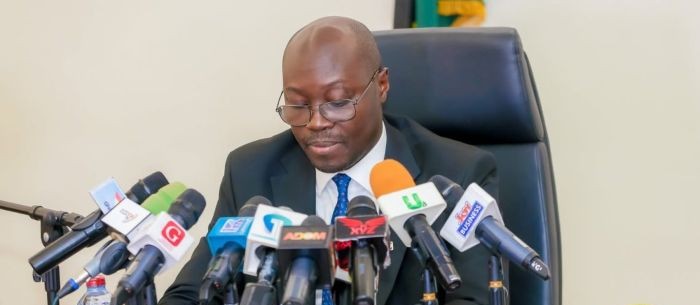On January 29, 2025, the Government of Ghana took a crucial step in addressing its rapidly rising debt problems by signing a Memorandum of Understanding (MoU) with the Official Creditor Committee. This agreement involved all participating creditor countries, including co-chairs China and France. The signing of the agreement marks a major leap toward restoring Ghana’s economic stability and debt sustainability in the long run. Notwithstanding, while this MoU represents a very important moment, its success depends on strategic implementation and conformation with basic principles.
The Significance of the MoU
The signing of this MoU reflects a collective commitment by the government of Ghana and international creditors to address Ghana’s debt crisis. This demonstrates a sense of solidarity and understanding of Ghana’s economic challenges. The key implications of the agreement include:
- Debt Treatment Formalisation
The MoU formalises a framework for debt treatment, which includes restructuring terms aimed at relieving Ghana’s debt burden. This kind of deal guarantees that a substantial amount of debt payment obligations would be reduced throughout the IMF-backed economic recovery program. - Reallocation of Financial Resources
The arrangement allows Ghana to reallocate financial resources toward vital economic endeavours by alleviating immediate debt payment obligations. This reallocation is necessary to enhance public services, such as healthcare and education, and stimulate growth in key industries, including infrastructure, energy, and agriculture. - Improved Investor Confidence
An organised debt settlement process increases foreign trust in Ghana’s financial management. This facilitates access to global financial markets and attracts foreign direct investment, which is essential for promoting economic recovery. - Strengthened Bilateral Relations
Ghana’s dedication to cooperating with its creditors is demonstrated by the OCC’s cooperative strategy, especially under the direction of China and France. Such diplomatic goodwill may pave the path for future international cooperation and economic agreements.
Cautionary Notes for Ghana
While the signing of the MoU is commendable, it is only the beginning of a complex journey. To ensure the success of this initiative, the government must tread carefully and adopt proactive measures:
- Maintaining Fiscal Discipline
The Government of Ghana must implement strict fiscal measures to prevent the recurrence of excessive debt accumulation. These measures could include reducing excessive borrowing, cutting unnecessary spending, and improving revenue collection through tax reforms and creative financing strategies. - Transparency and Accountability
The debt treatment agreement must be implemented transparently. To keep all parties involved, including residents and foreign partners, updated on the state of the economy’s recovery, the government should regularly release progress updates on debt restructuring. - Inclusivity in Debt Restructuring
To safeguard the interests of all creditors and prevent vulnerable groups from being disproportionately burdened by economic recovery, the Government of Ghana must prioritise equitable restructuring arrangements. - Economic Diversification
To avoid over-reliance on debt in the future, Ghana must diversify its economy by developing high-potential sectors such as technology, manufacturing, and renewable energy. This strategy will bolster economic resilience and create new revenue streams. - Negotiation of Favourable Terms
The Government of Ghana must strive to achieve conditions that strike a balance between debt reduction and economic growth when negotiating bilateral agreements with individual creditors. This calls for assistance from financial advisors and skilful negotiating abilities.
The Path Forward
This Memorandum of Understanding, signed with the OCC, presents a promising step towards Ghana’s economic recovery. Nevertheless, the path ahead requires a steadfast commitment to responsible economic reforms and effective management. To ensure that the benefits of debt relief result in significant enhancements in the standard of living of all Ghanaians, the government must leverage this opportunity to regain the trust of its citizens and creditors. Ghana could utilise this Memorandum of Understanding as a stepping stone towards sustainable growth and establish itself as an African leader in debt relief and economic resilience by coordinating budgetary restraint with sound development plans.
BudgIT Ghana remains committed to tracking the implementation of this agreement and advocating for fiscal responsibility that benefits all citizens. Together, we can ensure a brighter economic future for Ghana.
By Hamid Mumuni
